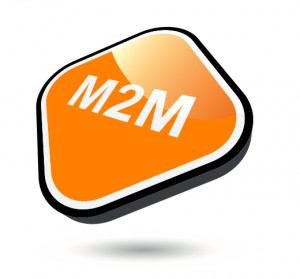Mango Automation is an open-source software platform aimed at machine-to-machine (M2M) communications, industrial control and SCADA networks, home and building automation and smart energy applications as well as other applications in the Internet-of-Things domain.
As a web browser-based, Ajax-enabled M2M software platform, Mango enables users to access and control Internet-of-Things networks and devices over multiple protocols simultaneously with a product that is easy to download and install across a range of different platforms.
However there is much more, Mango is a flexible, cross-platform software suite for industrial control and SCADA applications that allows you to record, log, graph, animate, alarm and report on data from sensors, equipment, PLCs, databases and webpages -providing an all-in-one data logging, control and monitoring system with a web browser based interface.
Because of Mango’s highly modular design, you can use Mango to put together the exact application that fits your needs. And as Mango is web browser based, with full support for almost all popular web browsers, including Google Chrome, Mozilla Firefox and Internet Explorer 7, it’s simple to deploy and use across a broad range of different devices with different operating systems, including PCs, smartphones or tablets, as long as your device supports a compatible web browser.
With an easy to use, visual, dynamic drag-and-drop design tool for configuring “dashboards” for the visualisation of your data, Mango can bring Internet-of-Things data to life.
Your data resides where you install Mango, so you are in control of your data, with the permissions that different users have to work with different sets administered under your control, and all in-browser communications with Mango supporting Secure Socket Layer (as with all modern web browsers), meaning that when using Mango you can have confidence in the security, privacy and local control of your data.
Mango provides an interface with which diverse data sources can be created and configured while providing downstream management of user access, alerts, data logging and automation, as well as providing flexible and convenient support for event handling.
Any events that occur in Mango can be handled arbitrarily through user-defined event handlers for both system and user-defined events. Your event handlers can initiate external actions such as sending email notifications and escalations via a mail server, for example, or they can set values of data points in Mango’s database.
Mango works well with very lightweight, compact embedded computers, offering very low energy use, no noise and low cost. On an embedded Linux box with an 800 MHz CPU and 500 Mb of RAM, for example, Mango can host hundreds of data points collected from multiple data sources using multiple protocols, just using an embedded database.
Mango supports a broad range of different connectivity and communications protocols for communication with external hardware and software services, and Mango can receive data from any device for which there is a protocol driver.
Currently supported protocols include Modbus, BACnet, OPC DA, Dallas 1-Wire, SNMP, SQL, HTTP, POP3, NMEA 0183, MBus, DNP3, OpenV, VMstat, and many other proprietary protocols developed by or for hardware vendors. As well as communicating with sensors and hardware devices such as webcams, Mango can easily communicate data, notifications and alerts with Web servers, mail servers, SQL databases and the like.
Mango also supports a “virtual” data source that can generate data for benchmarking or testing purposes, and support for more protocols is regularly being added with each new version of the software.
As Mango is entirely built around standard software technologies and tools such as SQL databases, Java, Ajax, Apache Tomcat and the Jetty webserver. Because of the adoption of standard technologies and best practices by the Mango development team and the wider open-source community which contributes patches back to Mango, the familiarity and experience with these widely used and industry-proven components helps to manage security and integration issues, making Mango more scalable, secure and reliable.
Mango is based around a core that provides the base services that the application uses and this core is written in Java, so it will run on any platform supported by Java 6 – Windows, Linux or Mac, for example, as well as many less familiar embedded environments.

The core functionality is extended to meet your application-specific needs by adding Mango Automation modules, which are simply “plugged in” to a Mango core instance by copying them into a sub-directory, and provide the specific functionality you need to create your SCADA application. Modules provide functionality such as connectivity to equipment via device “data sources”, graphical user interfaces, dashboards, language translations, themes and more.
As an open-source system, Mango offers you an almost infinite range of possibilities with a low initial investment – however there will always be the development time and related costs. But don’t let this put you off – Mango may be the ideal backbone your M2M requirements.
If this is of interest to you, or you’re looking to enter the world of the Internet-of-Things – then consult the experienced team here at the LX Group.
We can partner with you – finding synergy with your ideas and our experience to create final products that exceed your expectations.
To get started, join us for an obligation-free and confidential discussion about your ideas and how we can help bring them to life – click here to contact us, or telephone 1800 810 124.
LX is an award-winning electronics design company based in Sydney, Australia. LX services include full turnkey design, electronics, hardware, software and firmware design. LX specialises in embedded systems and wireless technologies design.
Published by LX Pty Ltd for itself and the LX Group of companies, including LX Design House, LX Solutions and LX Consulting, LX Innovations.
